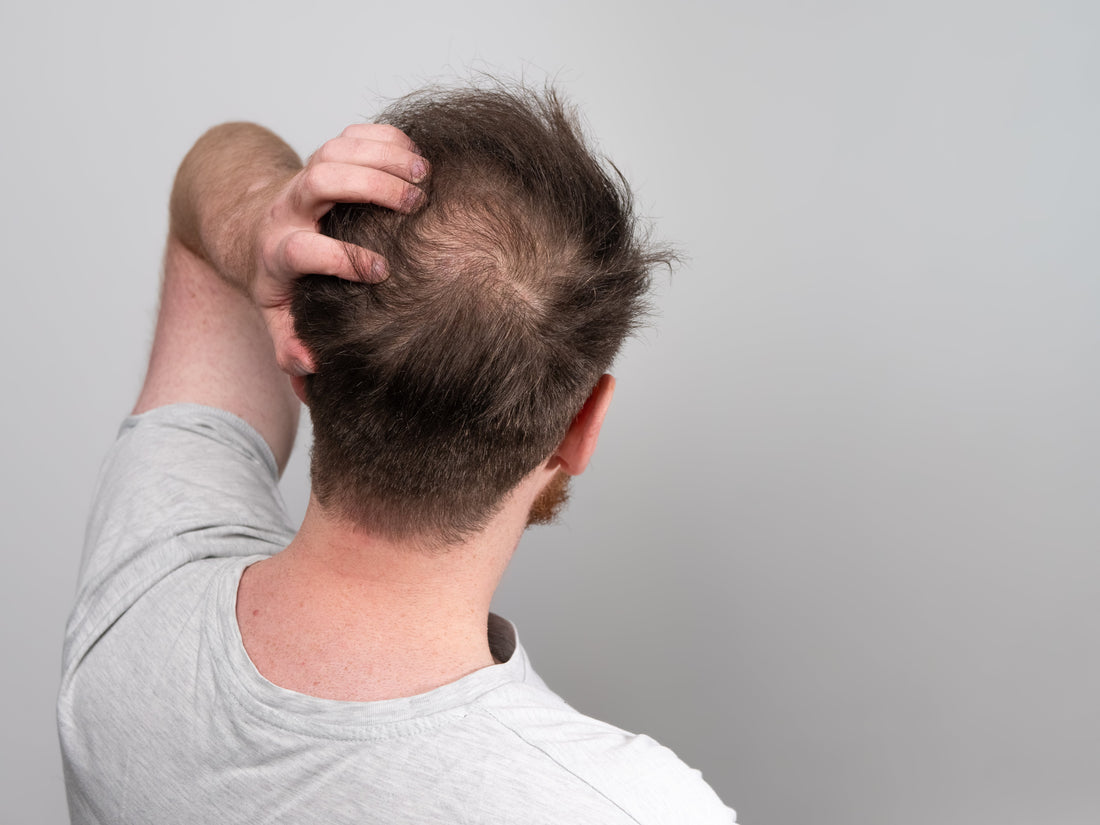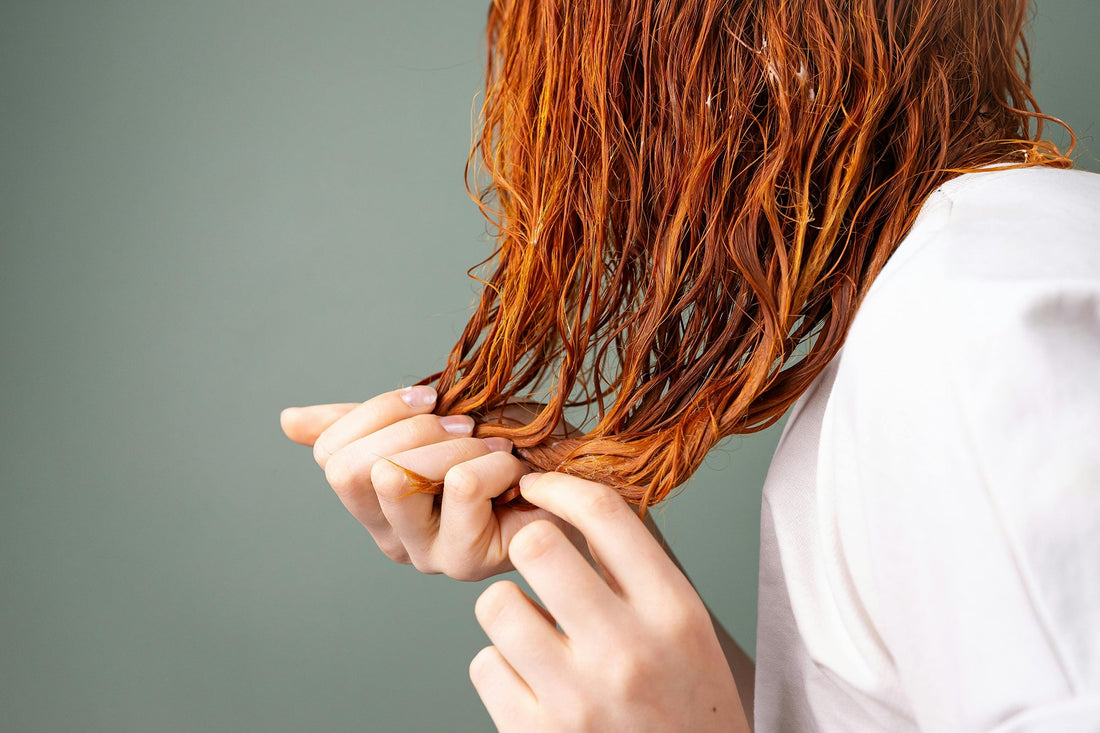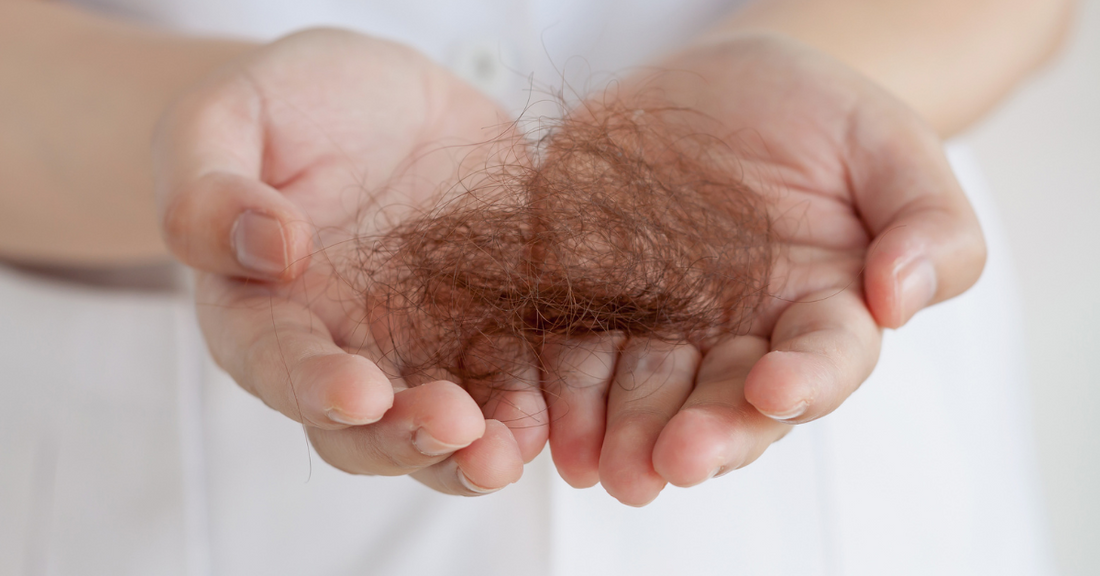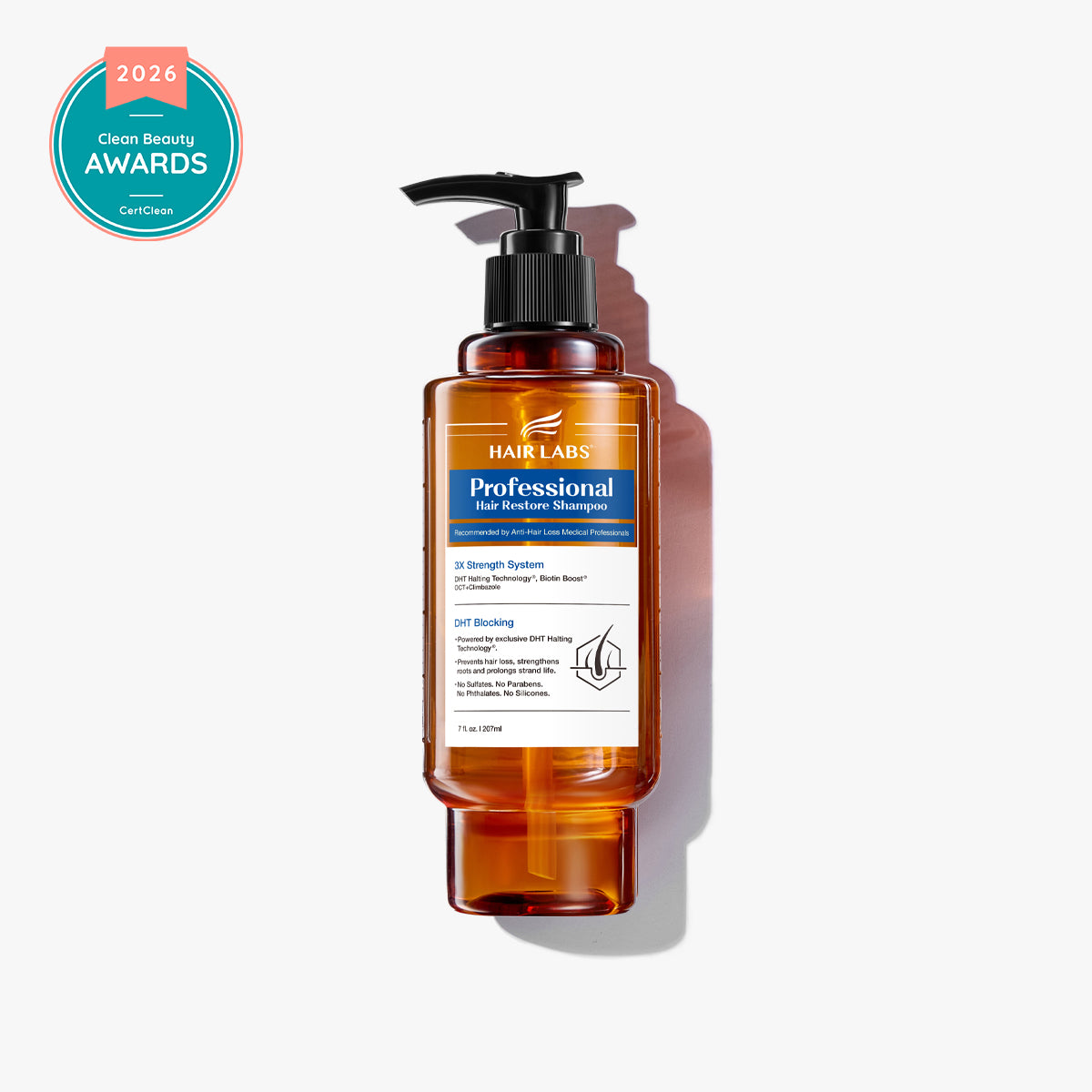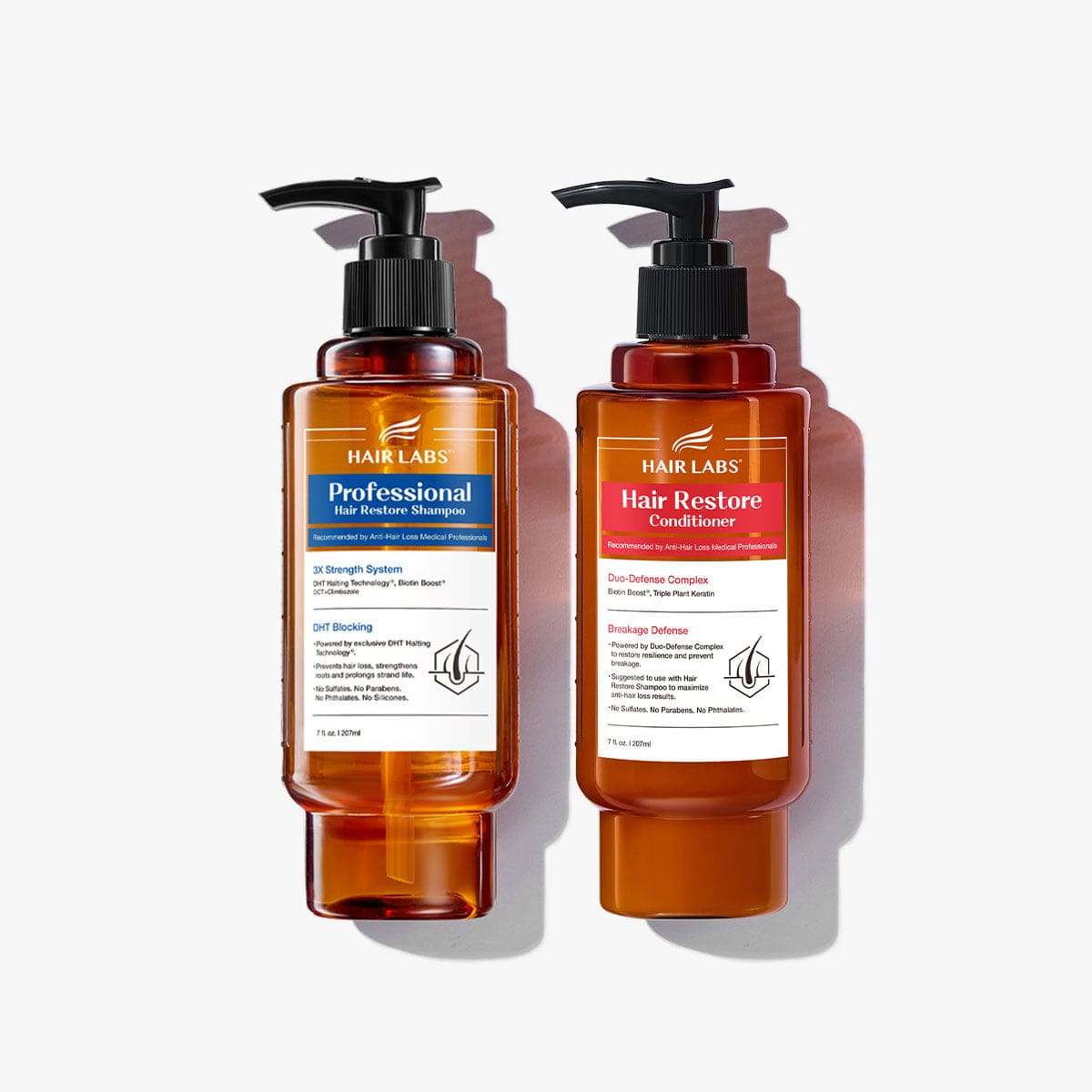Unfortunately, there are numerous myths that have been shared over the years as to what causes hair loss that are simply false. Many people, unfortunately, believe these myths. They panic wondering why they are still losing their hair.
Below are some popular myths as to what causes hair loss and an explanation as to whether they should be believed or are simply a fable.
- Washing Your Hair Too Much Leads To Hair Loss

Cleanliness, they say, is godliness, so why would shampooing your hair make your hair fall out? Though you might notice some strands of hair in your bathroom every time you wash your hair, it is normal. Actually, it is normal to lose between 150-200 hairs per day. Showering does not accelerate hair loss. Regular washing of hair removes excess grease, dead skin cell and can actually stimulate hair.
- Hair Loss Genes Come From Your Mother's Side

Genes contribute highly to our body makeup and hair is not an exception. Hair loss is polygenic. While the primary baldness gene is on the X chromosome, which men get only from their mothers, research suggests that men who have a bald father are more likely to develop male pattern baldness than those who do not. Therefore, your extended family members on both sides determine whether you will lose hair or not, not just family members on your mother's side.
- Younger People Do Not Lose Hair

The belief that only older people lose their hair is, unfortunately, a myth. On the contrary, hair loss can strike in the teens and is common among 20- and 30-year-olds. The earlier it begins, the more severe it will likely become.
- You Will Grow Multiple Grey Hairs If You Pull One Out

It is a fact that continuously pulling hair out can damage your scalp and prevent hair from growing in the particular area. However, hair does not multiply from the place you pluck one out.
- Stress Can Cause Hair Loss

Yes, stress and hair loss can be related.
Three types of hair loss that can be associated with high stress levels are:
- Telogen effluvium. With telogen effluvium, significant stress pushes large numbers of hair follicles into a resting phase. Within a few months, affected hairs might fall out suddenly when simply combing or washing your hair.
- Trichotillomania. Trichotillomania is an irresistible urge to pull out hair from your scalp, eyebrows or other areas of your body. Hair pulling can be a way of dealing with negative or uncomfortable feelings, such as stress, tension, loneliness, boredom or frustration.
- Alopecia areata. A variety of factors are thought to cause alopecia areata, possibly including severe stress. With alopecia areata, the body's immune system attacks the hair follicles — causing hair loss.
- Dyeing Your Hair Can Cause It To Fall Out

Using coloring products on your hair does not make you lose it.
The chemicals that you put on your hair to bleach or dye it may cause the shaft to break off. The root portion typically grows back after the scalp heals from the chemical irritation that creates itching and redness. If you are experiencing hair loss after you have color-treated your hair it is most likely due to damage to the hair shaft. Your hair will be somewhat weaker and you may see extra hair in your brush or in the shower drain.
- Wearing A Hat Can Cause Hair Loss

You do not actually believe that your hair will suffocate if you wear that baseball cap or hat for a long time, do you? This is because it won’t.
While dermatologists recommend a hat with a brim to protect the face from sun damage, that same hat can cause damage to the scalp by preventing the proper amount of air circulation. Without it, sweat can clog up the pores in the scalp and cause hair to slow down or even stop. So if you want a thick, healthy head of hair, it might be best to go the sunscreen route for sun protection and leave the hat wearing for the cooler months.
- Excessive Exposure To The Sun Can Lead To Hair Loss

Vitamin D from the sun is good for the body. More so, that same vitamin D is also good for hair. You must, however, remember to put on sunscreen while in the sun if you are losing hair to prevent sunburn on your scalp. Long-term exposure to UV rays may damage your hair, leaving it dry and brittle, and more prone to breakage as well as split ends. So, also do not forget to condition your hair on a regular basis.
- Birth Control Pills Make You Lose Hair

Birth control pills can cause hair loss in women who are especially sensitive to the hormones the pill contains or who have a family history of hormone-related hair loss.
Hair normally grows in cycles. Anagen is the active phase. During this phase, your hair grows from its follicle. This period can last for two to seven years. Catagen is the transitional stage when hair stops. It lasts for about 10 to 20 days. Telogen is the resting phase. During this phase, your hair doesn’t grow. Between 25 and 100 hairs are shed daily in this phase, which can last for up to 100 days.
Birth control pills can cause the hair to move from the growing phase to the resting phase too soon. This form of hair loss is called telogen effluvium and large amounts of hair can fall out during this process.
- Too Much Testosterone Can Cause Balding

Too much testosterone does not cause hair loss. Rather, it is the body's sensitivity and reaction that is made from testosterone, which causes genetic hair loss.

Taking multivitamins is beneficial for your overall well-being, but that does not imply that they can regrow lost hair. Studies suggest that food supplements can only boost your hair if the hair loss is caused by a deficiency in your diet.
If you are not seriously vitamin deficient, there is little chance that supplements can change a single thinning hair on your head. In fact, there is research showing that overuse of supplements that contain selenium, Vitamin A, or Vitamin E might actually make hair loss worse!
If you are truly vitamin deficient, it is important to consult with your physician to find out which vitamin(s) you are lacking. Blood tests can show if you are low in vitamin D, zinc, or iron, all of which are related to hair. Getting these nutrients back within the normal range can definitely make a difference in your well-being and possibly increase the density of your hair.
- Dandruff Causes Hair Loss

Some studies dedicated to find the link between dandruff and hair loss suggest that dandruff doesn’t cause hair loss directly; rather constant and aggressive scratching is the actual culprit behind it. As you often scratch your scalp to relieve itching, it weakens your hair roots causing your hair to fall out.
Some studies have found that hair growing from a dandruff-irritated scalp is already more damaged than hair from a healthy scalp – and that is before you start scratching. The weakened cuticle surface provides less protection to the hair fiber as it grows and could leave you more likely to experience hair loss due to breakage.
- Hair Care Styling Products Can Cause Hair Loss

There is a misconception that styling products can cause hair loss. Sometimes, it stems from the fact that certain styling products, particularly gel or wax, can make the hair look greasy, which can make hair look thinner.
Another reason people associate using styling products with hair loss is based on the normal amount of hair shedding that is experienced on a daily basis. Everyone – including people with no hair loss conditions – sheds around 100-150 hairs per day as part of the normal hair cycle.
These hairs often drop as we are moving around so we do not notice them. However, when you are doing something where the focus is purely on your hair – such as washing, brushing or applying product – your attention is drawn to those hairs that come out as you agitate your locks, causing pre-shed hairs to fall. What you are doing is not causing hair loss, it is simply making you more aware of this natural shedding process.
- Constantly Combing Your Hair Boosts Hair

Proper hair brushing can assist with hair, while improper brushing can accelerate it.
Running a brush or comb too hard through your hair causes a lot of physical stress on the hair fiber, and it can cause the cuticle to flake and strip away. Aggressively brushing while your hair is wet is also problematic, as it can lead to excessive pulling and breakage.
Your hair brush is a simple, necessary tool to tame tresses into the right style as you blow-dry. However, the type of brush you use and how you use it can influence the overall health of your hair.
For example, hair brushing with a boar bristle brush has been found to stimulate the capillaries, increasing blood circulation in the scalp and transporting oxygen and nutrients to the hair stem, root and bulb. It also helps to balance the sebaceous glands by stimulating them and allowing them to breath while retaining natural oils. Sebaceous gland imbalance is often to blame for hair loss, as overproduction and underproduction of sebum cause weakening and undernourishment of the scalp.
- Air-Dried Hair Grows Faster

Although, a hair dryer is one of the most common hair accessories most of us use regularly, it may not be entirely harmless. If the question “does a hair dryer cause hair loss?” pops up in your head, the answer is that it largely depends on the frequency of usage and the your hair dryer technique. Although, opinions are divided on whether hair dryers can cause permanent hair loss or not, they can be associated with substantial damage to the hair fiber over time.
Blow-drying your hair can damage to your hair when not done properly but so does air-drying. A study found that while the heat of a dryer can cause more damage than not using one, using a hair-dryer at the right distance and temperature can actually cause less damage than letting hair air-dry. That is because when hair comes in contact with water, it swells. The longer the swelling (say, for the 2 hours it took for hair to air-dry in the study), the more pressure it puts on the delicate proteins keeping the hair intact, which can lead to more damage.
Whatever method is used, moderation is essential when drying hair.
Hopefully, having debunked some of the hair loss myths, you can better understand what to do, and what not to do, to help prevent hair loss and grow the thickest, fullest and healthiest hair possible.



